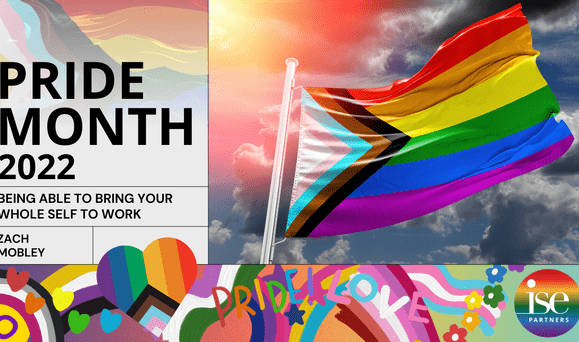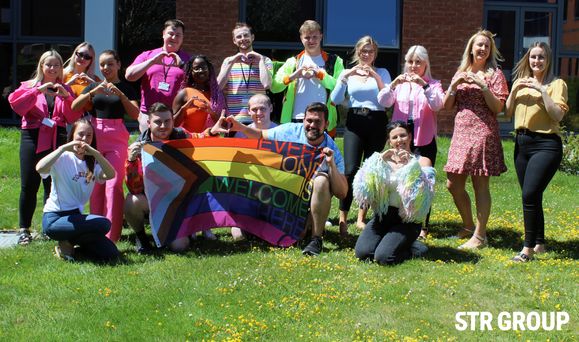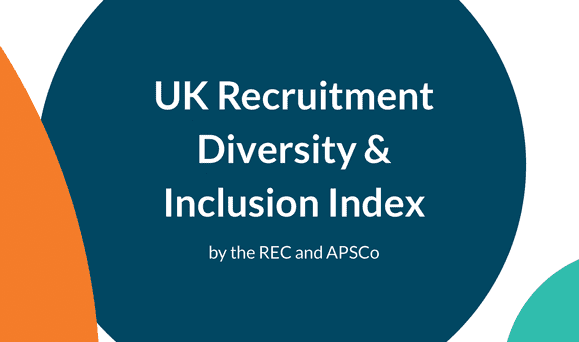
Pride month - Building a culture of inclusion in recruitment
Advice for employers
Guest blog by Joe Taffurelli from Liquid Friday
Most recruiters and hirers would agree that a diverse workforce is good for business. Having a team made up of people from diverse backgrounds and perspectives creates an atmosphere of openness and inclusion. In an environment where people aren’t reticent to share diverse viewpoints, ideas thrive, which in turn drives innovation and results.
With that in mind, Pride month is a suitable time to reflect on progress for the inclusion and support of LGBTQ+ staff in the UK’s workplaces.
There’s no doubt there is room for improvement in every business; recent data from the Chartered Management Institute (CMI) indicates major gaps in approaches to diversity, equity and inclusion. It’s clear that many hiring businesses are still playing catch up when it comes to recruiting and supporting members of the LGBTQ+ community.
The same CMI data suggests that only 70% of non-heterosexual respondents felt comfortable being open about their sexual orientation with their colleagues and 63% felt comfortable being open with their manager. While these results certainly are much more positive than they would have been a few years ago, there is still clearly a way to go and must be a priority for every business leader.
Inclusion from the ground up
A more diverse and accepting workforce starts with better recruitment practices - it is not just about setting up and filling diversity quotas, it is about building a culture of inclusion from the ground up - so it falls to recruiters to set a solid foundation on which to build such a culture.
Know where you are starting from
From the outside looking in, it can be hard to get a true gauge on a company’s culture. The public face of a business might present values of inclusion, but this may not be the case when you look behind the scenes.
To best support LGBTQ+ candidates as a recruiter, a good place to start is by asking the right questions about a hiring company’s existing policies and finding out whether they are truly supportive of an inclusive culture and not just “rainbow washing” with a fancy logo. For example, are there any openly LGBTQ+ staff, particularly in leadership roles? Do medical benefits cover non-conventional families? Are social events and clubs deliberately inclusive?
Communicate the benefits of diversity
Recruiters can help employers understand the benefits of diversity in their workforce, of which the list is long (and backed by extensive data for anyone who wishes to google it!). These include increased creativity and innovation, better decision making, higher employee engagement, lower turnover, and increased profits.
Yet it is equally important to point out to hiring businesses that they will not see these benefits if they treat inclusion simply as a box-ticking exercise.
Make all welcome
When it comes to recruiting the best LGBTQ+ talent, don’t keep people guessing! Make it clear in job descriptions and advertisements that all sexual orientations and gender identities are welcome to the role.
It is also vital that everyone involved in the recruitment process, both internal and external, is aware and onboard.
As a recruiter, you can also discourage unconscious bias by removing personal details from a CV or application, so applicants are purely chosen on their skills and experience, rather than any assumptions based on their background or interests.
While we’ve focused here on LGBTQ+ inclusion, recruiters shouldn’t underestimate the essential role they have in championing all minority communities in the workplace. Inclusive recruitment practices are the first step to a wider culture of inclusion across organisations, and society in general. It all starts with you!
It is my strong belief that as I have moved through my own career, there has been large leaps forward in LGBTQ+ rights. However, I can assure you that the fight for respect, acceptance and tolerance is not over. There are sadly too many incidents in the press and tribunals of shocking discrimination cases, it is devastating that this is still the case in 21st century Britain and our industry has the ability, influence, and position within supply chains to lead this change and ensure that everyone regardless of their gender or sexuality is always afforded the same opportunities.
We are working hard at Liquid Friday to make sure we are leading the charge; we have always prided ourselves on being an inclusive employer that goes beyond simply “accepting” people for who they are but celebrating them for their differences. It may even be the secret to our success, as one client once kindly informed me that they love Liquid Friday as we are a “collection of slightly quirky individuals” - for me that was a huge accolade. I for one would rather work in a diverse, vibrant, and exciting environment that clearly embraces people from every part of the rainbow and that we really celebrate uniqueness, never accepting the mundane, cubicle worker.
About Joe:
As Head of Group Operations and a member of the Senior Leadership Team at Liquid Friday, Joe oversees strategy and provision of services across the group. With extensive expertise in the provision of temporary labour and business operations, Joe has over 10 years’ experience at the heart of the umbrella industry, set in good stead by 5 years working with DWP helping to shape policy. As well as the demands of his role, Joe is currently working towards a Strategic Leadership MBA at the University of Portsmouth.
Liquid Friday is an REC business partner and an FCSA accredited provider of umbrella and CIS payroll, with a reputation built on personal service and integrity. Established in 2006, Liquid Friday is on the approved supplier lists of a number of the Top 250 agencies while being small enough to maintain a friendly, personal approach in all client relationships.
This is a guest blog contribution for the REC website. The views expressed by guest writers reflect the individual's personal opinions.
Share this article




